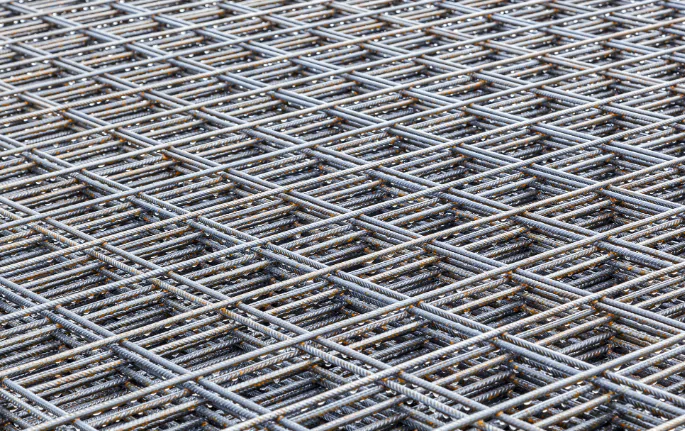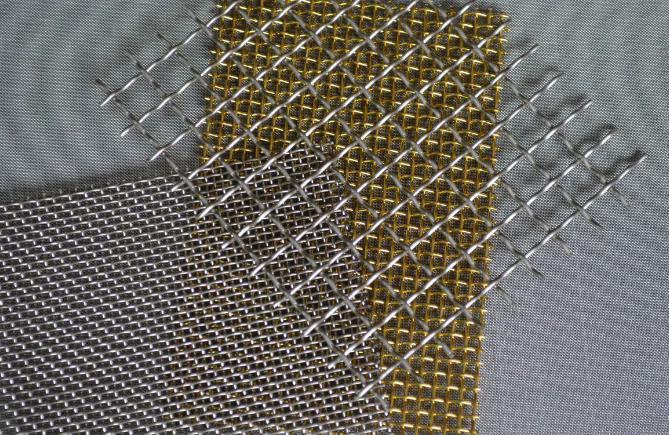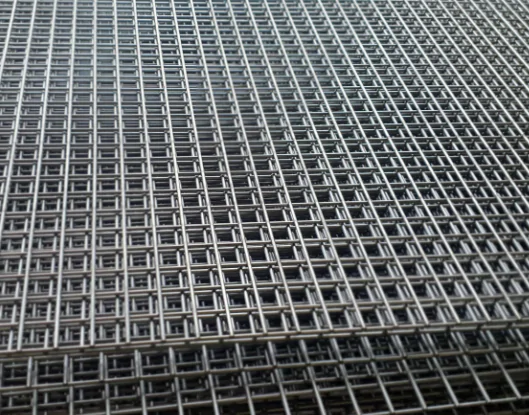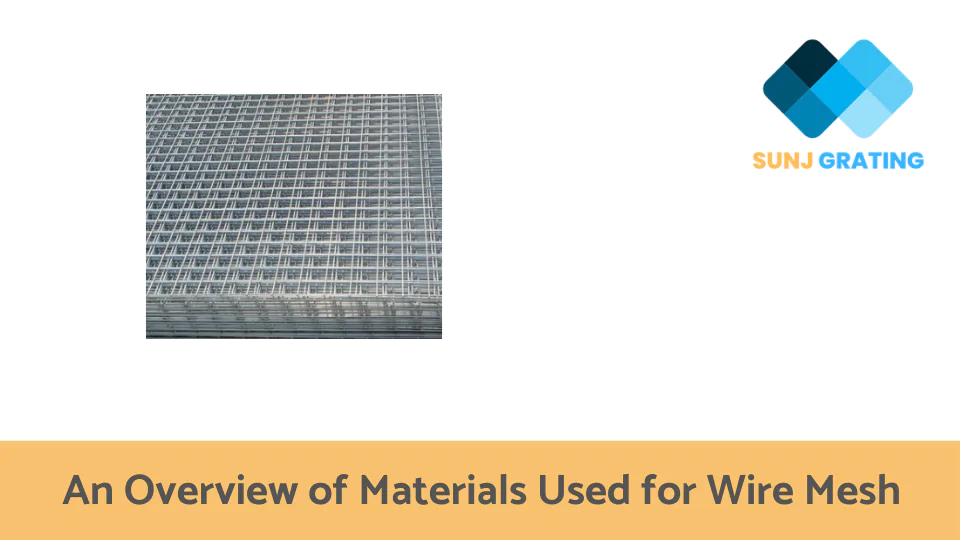Introduction
Wire mesh is a versatile material used in various industries, from construction to agriculture. Understanding the materials used for wire mesh is crucial in choosing the right one for your project. In this article, we’ll provide an overview of the materials used for wire mesh and their properties, helping you make an informed decision.
Whether you’re looking for strength, durability, or corrosion resistance, a wire mesh material can meet your needs. We’ll explore the properties of popular materials such as stainless steel, copper, and aluminum and specialty options like monel and titanium.
1. What is a wire mesh

Wire mesh, or wire cloth, is a woven fabric made of metallic wires. It is commonly used in industrial, commercial, and residential applications, including filtration, protection, reinforcement, and decoration.
Features
- High strength and durability
- Corrosion and rust resistance
- Good ventilation and light transmission
- Easy to clean and maintain
- Versatile and customizable
Construction
Wire mesh is constructed by interweaving individual wires into various patterns, such as plain weave, twill weave, Dutch weave, and others. The wires can be made of different materials, such as stainless steel, aluminum, copper, brass, and others, and have various diameters and mesh openings. The thickness and weight of wire mesh can vary depending on the intended application.
Functions
- Filtration: Wire mesh is often used as a filter medium to separate particles and impurities from fluids and gases in various industries, including oil and gas, food and beverage, pharmaceuticals, and others.
- Protection: Wire mesh is commonly used as a protective barrier to prevent intrusion, impact, or damage in various applications, such as fencing, window screens, and animal cages.
- Reinforcement: Wire mesh can reinforce concrete, plaster, and other materials to increase their strength and durability in construction and infrastructure projects.
- Decoration: Wire mesh can be used as a decorative element in architecture, interior design, and art, adding texture, depth, and visual interest to various surfaces and spaces.
Wire mesh is a versatile and valuable material that You can customize to meet various needs and applications.
2. Different materials used for wire mesh

Wire mesh can be made of different materials, each with unique features and benefits. Here are some of the most common materials used in wire mesh:
Stainless Steel
Stainless steel wire mesh is the most commonly used material for wire mesh due to its high strength, durability, and resistance to corrosion and rust. It is available in different grades and can withstand high temperatures and harsh chemicals. Stainless steel wire mesh is commonly used in industries such as oil and gas, chemical processing, and food and beverage.
Aluminum
Aluminum wire mesh is lightweight, easy to work with, and has good corrosion resistance. It is often used in architectural and decorative applications, such as window screens and room dividers, as well as in the aerospace and automotive industries.
Bronze
Bronze wire mesh is a strong and durable material with good electrical conductivity and corrosion resistance. It is often used in filtration and screening applications in the aerospace, electronics, and telecommunications industries.
Copper
Copper wire mesh is highly conductive and corrosion-resistant, making it an excellent choice for electromagnetic shielding, grounding, and electrical applications. It is also used in decorative and architectural applications due to its warm and rich color.

Brass
Brass wire mesh is golden-yellow and known for its good electrical conductivity, corrosion resistance, and low friction. It is often used in filtration, decoration, and industrial applications.
Galvanized Steel
Galvanized steel wire mesh is made by coating the wire with a zinc layer, providing excellent corrosion resistance. It is commonly used in fencing, security, and agricultural applications.
Titanium
Titanium wire mesh is a strong and lightweight material with excellent corrosion resistance, making it ideal for harsh environments. It is often used in the aerospace, medical, and chemical processing industries.
3. Benefits of various material and common applications

Stainless Steel Wire Mesh
Advantages: High strength and durability, excellent resistance to corrosion and rust, can withstand high temperatures and harsh chemicals.
Applications: Oil and gas industry, chemical processing, food and beverage processing, filtration, reinforcement, and decoration.
Aluminum Wire Mesh
Advantages: Lightweight, easy to work with, good corrosion resistance.
Applications: Architectural and decorative, window screens, room dividers, aerospace, automotive.
Bronze Wire Mesh
Advantages: Strong and durable, good electrical conductivity, corrosion resistance.
Applications: Filtration, screening, aerospace, electronics, telecommunications.
Copper Wire Mesh
Advantages: Highly conductive, excellent resistance to corrosion, electromagnetic shielding.
Applications: Electrical, grounding, electromagnetic shielding, decoration, architecture.

Brass Wire Mesh
Advantages: Good electrical conductivity, low friction, corrosion resistance, attractive appearance.
Applications: Filtration, decoration, industrial, architectural.
Galvanized Steel Wire Mesh
Advantages: Good strength and durability, excellent resistance to corrosion, affordable.
Applications: Fencing, security, agriculture, reinforcement.
Titanium Wire Mesh
Advantages: Strong and lightweight, excellent corrosion resistance, ideal for harsh environments.
Applications: Aerospace, medical, chemical processing, filtration.
Conclusion
Choosing the suitable material for your wire mesh can make all the difference in its performance and longevity. By understanding the unique properties of each material, you can select the best one for your specific application. Whether for filtration, reinforcement, or decoration, the suitable wire mesh material can help you achieve your desired results.


